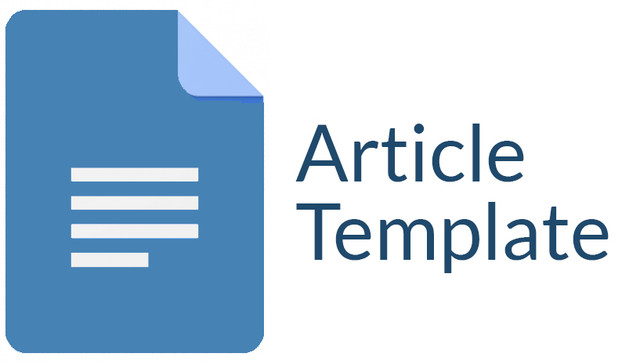Perancangan Aplikasi Teaching Factory Berbasis Website di SMKN 9 Bandung
DOI:
https://doi.org/10.30736/informatika.v10i1.1396Keywords:
Sistem Informasi, Teaching Factory, SMK, Laravel, Aplikasi Web, OmzetAbstract
Teaching Factory (TEFA) adalah metode pembelajaran yang menghubungkan Sekolah Menengah Kejuruan (SMK) dengan dunia usaha dan industri (DUDI) melalui kegiatan produksi berbasis standar industri. Namun, implementasi TEFA masih menghadapi kendala dalam pencatatan omzet, manajemen produk, dan evaluasi kinerja usaha siswa. Sistem informasi berbasis web dirancang untuk mendukung pengelolaan TEFA secara efektif. Penelitian ini bertujuan merancang aplikasi Teaching Factory berbasis web di SMKN 9 Bandung menggunakan framework Laravel dan Laragon. Fitur utama meliputi input omzet, input produk, analisis SWOT, dan sistem peringkat otomatis. Metode waterfall digunakan dalam pengembangan aplikasi. Hasil pengujian menunjukkan aplikasi membantu pengelolaan TEFA lebih efisien dan memberikan alat evaluasi berbasis data bagi sekolah. Aplikasi ini diharapkan menjadi model pengembangan TEFA berbasis teknologi di SMK lain.
Downloads
References
I. Purnama, H. Nasution, and N. Safriadi, “Aplikasi Teaching Factory ( TEFA ) Berbasis Website pada SUPM Pontianak Website-Based Teaching Factory Application ( TEFA ) at SUPM Pontianak,” vol. 02, no. 2, pp. 52–58, 2024, doi: 10.26418/juara.v2i2.77603.
S. Bahri and P. P. Budi, “RANCANG BANGUN SISTEM INFORMASI BERBASIS WEB PADA TEACHING FACTORY BAKERY SMK PUTRA ANDA BINJAI,” vol. 8, no. 3, 2020.
W. Rohmah, D. E. Sari, and A. Wulansari, “PEMBELAJARAN BERBASIS TEACHING FACTORY DI SMK NEGERI 2 SURAKARTA,” vol. 29, no. 2, pp. 78–85, 2019.
L. Suryati, Ganefri, A. Ambiyar, A. Yulastri, and Fadhilah, “Penerapan Program Teaching Factory dalam Mempersiapkan Kompetensi Kewirausahan Siswa pada Pendidikan Vokasi,” J. Penelit. dan Pengemb. Pendidik., vol. 7, pp. 58–66, Mar. 2023, doi: 10.23887/jppp.v7i1.58257.
M. Hasanah, J. Sojanah, and B. Santoso, “Pengaruh Pendidikan Kewirausahaan dan Model Pembelajaran Teaching Factory terhadap Kesiapan Berwirausaha Siswa di SMK,” J. Pendidik. Ekon. Undiksha, vol. 15, pp. 21–27, Jul. 2023, doi: 10.23887/jjpe.v15i1.61567.
Y. Karyanto and R. Asmaul, “PENGEMBANGAN MODEL PEMBELAJARAN ‘ TEACHING FACTORY ’ UNTUK,” vol. 6, no. 1, pp. 89–98, 2023.
P. C. NOVASSA, “Prameswari Clarissa Novassa, 2020 PENGEMBANGAN DAN IMPLEMENTASI E-JOBSHEET TEACHING FACTORY PRODUKSI ROTI BERBASIS SKKNI DI SMK NEGERI PP CIANJUR Universitas Pendidikan Indonesia | repository.upi.edu | perpustakaan.upi.edu,” 2020.
W. Fathurrohman, P. Universitas, and N. Semarang, “JIPTEK : Jurnal Ilmiah Pendidikan Teknik dan Kejuruan,” vol. 17, no. 2, pp. 230–237, 2024.
Suciani, “Evaluasi Implementasi Program Teaching Factory Pada Program Keahlian Animasi di SMK Negeri 3 Tangerang Selatan,” vol. 1, no. 1, 2023.
S. M. Zahra Pitaloka Prasloranti, Masriam Bukit, “Evaluasi pelaksanaan model pembelajaran teaching factory di smkn 1 cibadak,” vol. 6, no. 2, 2021.
D. A. Putra, S. Vratiwi, R. R. Hidayatullah, and T. A. Hasan, “Manajemen pembelajaran teaching factory dalam meningkatkan kompetensi keahlian siswa di sekolah menengah kejuruan (smk),” vol. 7, no. 3, pp. 101–111, 2022, doi: 10.34125/mp.v7i3.898.
A. A. Wahid, “Analisis Metode Waterfall Untuk Pengembangan Sistem Informasi,” no. November, 2020.
M. T. J. Salahudin Robo, Andrian Sah, Andri Tri Sidarmawan, “PENERAPAN METODE WATERFALL DALAM PENGEMBANGAN SISTEM INFORMASI E-LEARNING,” vol. 4, no. 2, pp. 154–164, 2021.
M. Badrul and R. Ardy, “Penerapan Metode Waterfall pada Perancangan Sistem Informasi Pendaftaran Siswa Baru,” vol. 5, pp. 52–61, 2021.
D. F. W. PRATAMA, “PENERAPAN METODE WATERFALL UNTUK PENGEMBANGAN SISTEM INFORMASI PERPUSTAKAAN SMP KEBON DALEM BERBASIS WEB MENGGUNAKAN FRAMEWORK CODE IGNITER,” 2021.
W. S. Dharmawan, D. Purwaningtias, and D. Risdiansyah, “Penerapan Metode SDLC Waterfall Dalam Perancangan Sistem Informasi Administrasi Keuangan Berbasis Desktop,” vol. VI, no. 2, 2018.
G. W. Sasmito, “Penerapan Metode Waterfall Pada Desain Sistem Informasi Geografis Industri Kabupaten Tegal,” vol. 2, no. 1, pp. 6–12, 2017.
N. R. Ramadani and J. Barat, “SISTEM INFORMASI JASA LAUNDRY BERBASIS WEB,” vol. 5, pp. 52–65, 2021.
A. Syukron and M. H. Abdurrazaq, “Perancangan Sistem Informasi Penggajian Karyawan Berbasis Website Dengan Metode Waterfall,” vol. 1, no. 2, pp. 74–83, 2021.
Downloads
Published
How to Cite
Issue
Section
License
Copyright (c) 2025 ceria azra pratami, Rita Komalasari

This work is licensed under a Creative Commons Attribution-ShareAlike 4.0 International License.
Joutica : Journal of Informatic Unisla is licensed under an Attribution-ShareAlike 4.0 International (CC BY-SA 4.0) license. You are free to:
- Share copy and redistribute the material in any medium or format
- Adapt remix, transform, and build upon the material for any purpose, even commercially. This license is acceptable for Free Cultural Works.
The licensor cannot revoke these freedoms as long as you follow the license terms.
- Attribution You must give appropriate credit, provide a link to the license, and indicate if changes were made. You may do so in any reasonable manner, but not in any way that suggests the licensor endorses you or your use.
- Share Alike If you remix, transform, or build upon the material, you must distribute your contributions under the same license as the original.
- No additional restrictions You may not apply legal terms or technological measures that legally restrict others from doing anything the license permits.
Copyright
Authors who publish with this journal agree to the following terms:
- Authors retain copyright and grant the journal right of first publication with the work simultaneously licensed under an Attribution-ShareAlike 4.0 International (CC BY-SA 4.0) that allows others to share the work with an acknowledgment of the work's authorship and initial publication in this journal.
- Authors are able to enter into separate, additional contractual arrangements for the non-exclusive distribution of the journal's published version of the work (e.g., post it to an institutional repository or publish it in a book), with an acknowledgment of its initial publication in this journal.
- Authors are permitted and encouraged to post their work online (e.g., in institutional repositories or on their website) prior to and during the submission process, as it can lead to productive exchanges, as well as earlier and greater citation of published work (See The Effect of Open Access).

Joutica : Journal of Informatic Unisla by Universitas Islam Lamongan is licensed under a Creative Commons Attribution-ShareAlike 4.0 International License.
Based on a work at https://jurnalteknik.unisla.ac.id/index.php/elektronika/index







